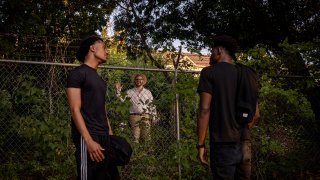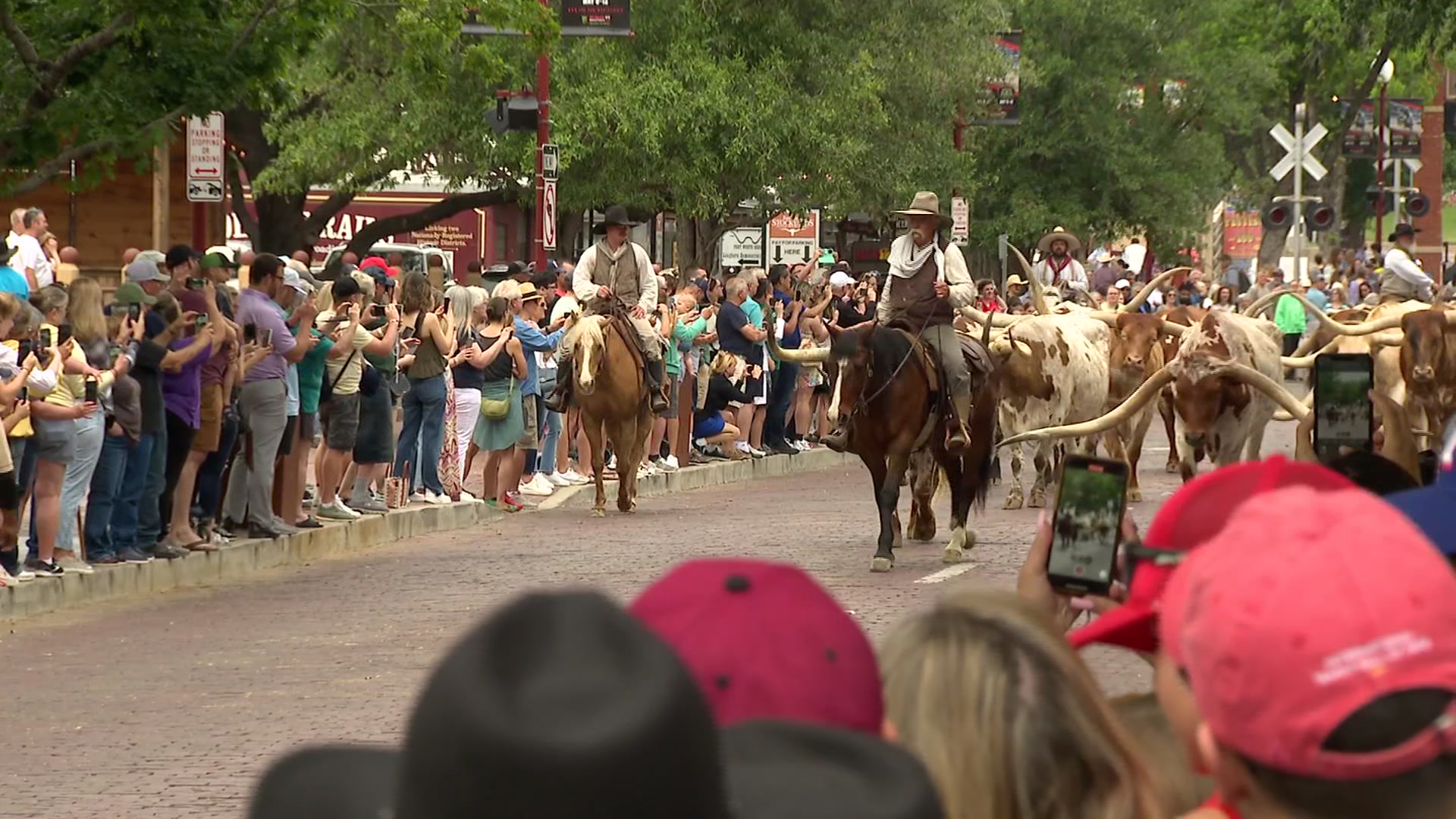
The Exodus story and Samuel Beckett’s most famous play take on fresh relevance in Antoinette Nwandu’s Pass Over, a play running at Second Thought Theatre in Dallas July 20-30.
“It is our own Biblical tale. It’s like 2022 meets the Bible,” said Sasha Maya Ada, the show’s director.
Pass Over, the first full play to open on Broadway in 2021 following the pandemic shutdown, uses aspects of Beckett’s Waiting for Godot and the Biblical Exodus story to explore the hopes of two young Black men stuck on a city block, dreaming of a better future. The play is the second show of Second Thought Theatre’s season focused on disparity.
Nwandu wrote three endings for the show. She wrote the ending that Second Thought Theatre is using as a response to what was happening to young Black men during the Trump Administration.
Get DFW local news, weather forecasts and entertainment stories to your inbox. Sign up for NBC DFW newsletters.
“This specific ending came out of despair to what was going on: the number of names being turned into hashtags, the fact that she was working with young people of New York,” Ada said. “And I think that to me encompasses the disparity that it was young Black men growing up in the midst of the pandemic had to look and time after time after time that people like them were being murdered and forgotten. No other demographic in the U.S. has a similar history.”
The Biblical references come in the form of the names of characters, including one of the lead characters, Moses, and in the character descriptions. These characters are hoping for the Promised Land, even as they exist in a stifling environment.
“It feels like an opportunity for us to see modern-day America in 2022 in parallel with that Biblical story. That’s pretty powerful because we don’t associate the Bible with stories of Black people,” Ada said. “It’s not about religion. It is a play about hope. It is a play about aspirations. It is a play about faith in the most non-religious terms. It feels like faith in your friends, in your space, in your home, in your potential.”
The Scene
Like Beckett’s tramps waiting under a tree for a character who never arrives, Moses and another young Black man, Kitch, wait for something better that’s beyond the block where they seem trapped.
“You’ve got two people who are stuck in a space who cannot move, and I think it’s fascinating that we as the audience gets stuck with them,” Ada said. “There’s something about it that feels like a window into something.”
Moses and Kitch trash talk and play games to pass the time.
“We see the evolution of their relationship throughout the play from friends to brothers to support systems to people that may hate each other through that brotherly lens or not,” Ada said.

Their aspiration is simple: to pass over.
“I think it is a metaphor for what are the resources outside of this block. There are moments where we see Antoinette highlight things like food deserts in a way that might not be expected,” Ada said.
Nwandu writes these characters as average human beings. They are not examples of excellence or evil.
“They are simply ordinary Black men and all they want to do is get off their block,” Ada said.
Passing over has a deeper meaning.
“As the audience and as the director, I think passing over is liberation, is freedom, is being able to step off the block, not get stuck, not get shot and being able to thrive,” Ada said.
In Moses and Kitch’s average existence, there is humor.
“I’m biased, but I think Black people are really funny. I think we’re hilarious. I think we have in a way to combat the horrible atrocities we’ve had to endure, survive, overcome, that humor is at the heart of what we do. It is everywhere. It is a funny show,” Ada said. “It was nice to live in Black joy for a while. It is absolutely there. There’s something about seeing two young Black men be two young Black men onstage.”
Pass Over is being produced in partnership with Big D Reads ’22, a community-wide reading program championing Jim Schutze’s 1986 novel, The Accommodation: The Politics of Race in an American City. The book and the play inspire questions about societal norms and relationships within a community.
“I hope this play allows people to be more comfortable around unfiltered Blackness and allows us to understand how tiny cuts cut deeper than we expect and that we are all connected in the result of things. It’s a trickle-down effect,” Ada said. “It’s an hour and 20 minutes of our lives to invest in a story that we don’t often get to hear, and I think that’s important.”
Learn more: Second Thought Theatre



